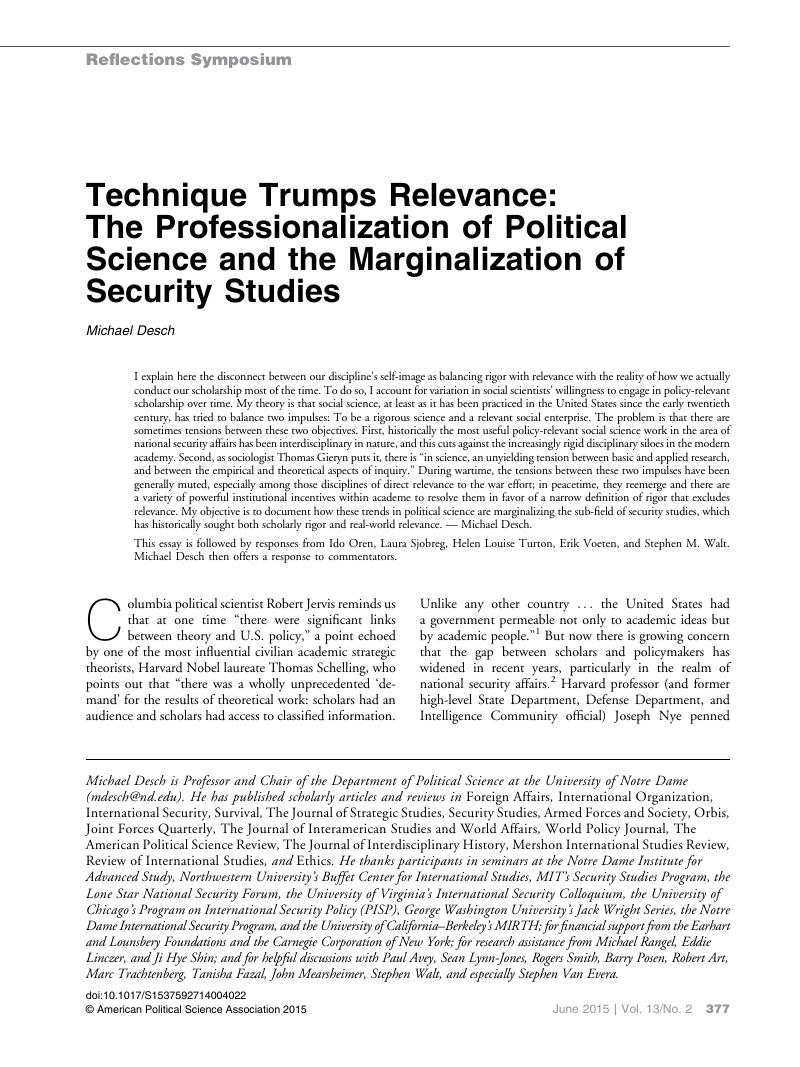Crossref Citations
This article has been cited by the following publications. This list is generated based on data provided by Crossref.
Lynch, Marc
2016.
Political Science in Real Time: Engaging the Middle East Policy Public.
Perspectives on Politics,
Vol. 14,
Issue. 1,
p.
121.
Jahn, Beate
2016.
Theorizing the Political Relevance of International Relations Theory.
International Studies Quarterly,
p.
sqw035.
Hom, Andrew R.
2017.
Forum: “A Bridge Too Far”? On the Impact of Worldly Relevance on International Relations.
International Studies Review,
Vol. 19,
Issue. 4,
p.
692.
Rosert, Elvira
2019.
Die Internationalen Beziehungen auf dem Rückzug? Warum Professionalisierung und Praxisrelevanz kein Widerspruch sind.
Zeitschrift für Außen- und Sicherheitspolitik,
Vol. 12,
Issue. 1,
p.
113.
Avey, Paul C
Desch, Michael C
Parajon, Eric
Peterson, Susan
Powers, Ryan
and
Tierney, Michael J
2022.
Does Social Science Inform Foreign Policy? Evidence from a Survey of US National Security, Trade, and Development Officials.
International Studies Quarterly,
Vol. 66,
Issue. 1,
McIntosh, Christopher
2022.
From Policy Relevance to Present Relevance: Entanglement, Scholarly Responsibility, and the Ethics of Quantum Social Theory.
Global Studies Quarterly,
Vol. 2,
Issue. 3,
Borg, Stefan
2023.
Cult of irrelevance or broad church? Responsiveness, diversity, and intellectual pluralism in the academic study of security.
European Political Science,
Vol. 22,
Issue. 4,
p.
511.



